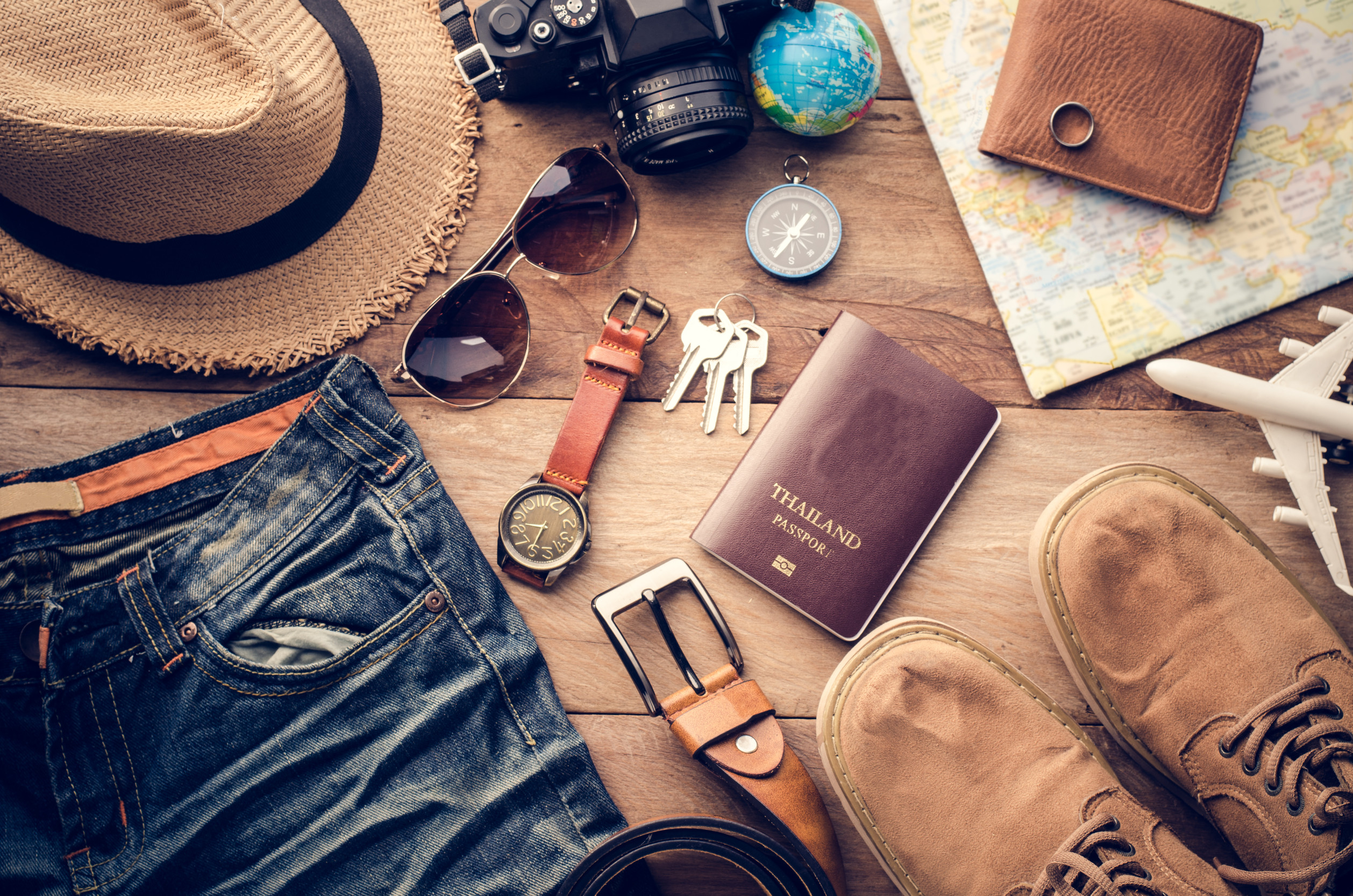
Packing for a trip to Tanzania requires careful planning to ensure you're well-prepared for safaris, beach vacations, mountain climbs, and cultural experiences. Whether you're exploring the Serengeti, relaxing in Zanzibar, or hiking Mount Kilimanjaro.
Essential Documents and Travel Items to Tanzania

Preparing the right documents and travel essentials ensures a smooth and stress-free journey to Tanzania. Whether you're visiting for a safari, a beach getaway, or cultural exploration, having the necessary paperwork and items will help avoid any last-minute issues. Below is a checklist of essential documents and travel necessities to carry:
- Passport – Must be valid for at least six months beyond your travel dates.
- Tanzania Visa – Apply for an Tanzania eVisa or get a visa on arrival (depending on your nationality).
- Yellow Fever Vaccination Certificate – Required if arriving from a country with yellow fever risk.
- Travel Insurance – Covers medical emergencies, trip cancellations, and lost baggage.
- Flight Tickets and Itinerary – Print copies of your travel plans.
- Emergency Contacts – Including hotel addresses and local emergency numbers.
- Cash & Cards – US dollars (preferably post-2009 notes) and a credit/debit card.
- Photocopies of Important Documents – Keep digital and hard copies of your passport, visa, and insurance.
Clothing: What to Wear in Tanzania
Tanzania’s climate varies from hot and humid coastal areas to cooler high-altitude regions. Pack lightweight, breathable fabrics like cotton and linen for daytime wear, including t-shirts, shorts, and sundresses. For safaris, opt for neutral-colored clothing (khaki, beige, or olive) to blend into the environment and avoid attracting insects like tsetse flies, which are drawn to dark colors
1. Safari & Outdoor Wear
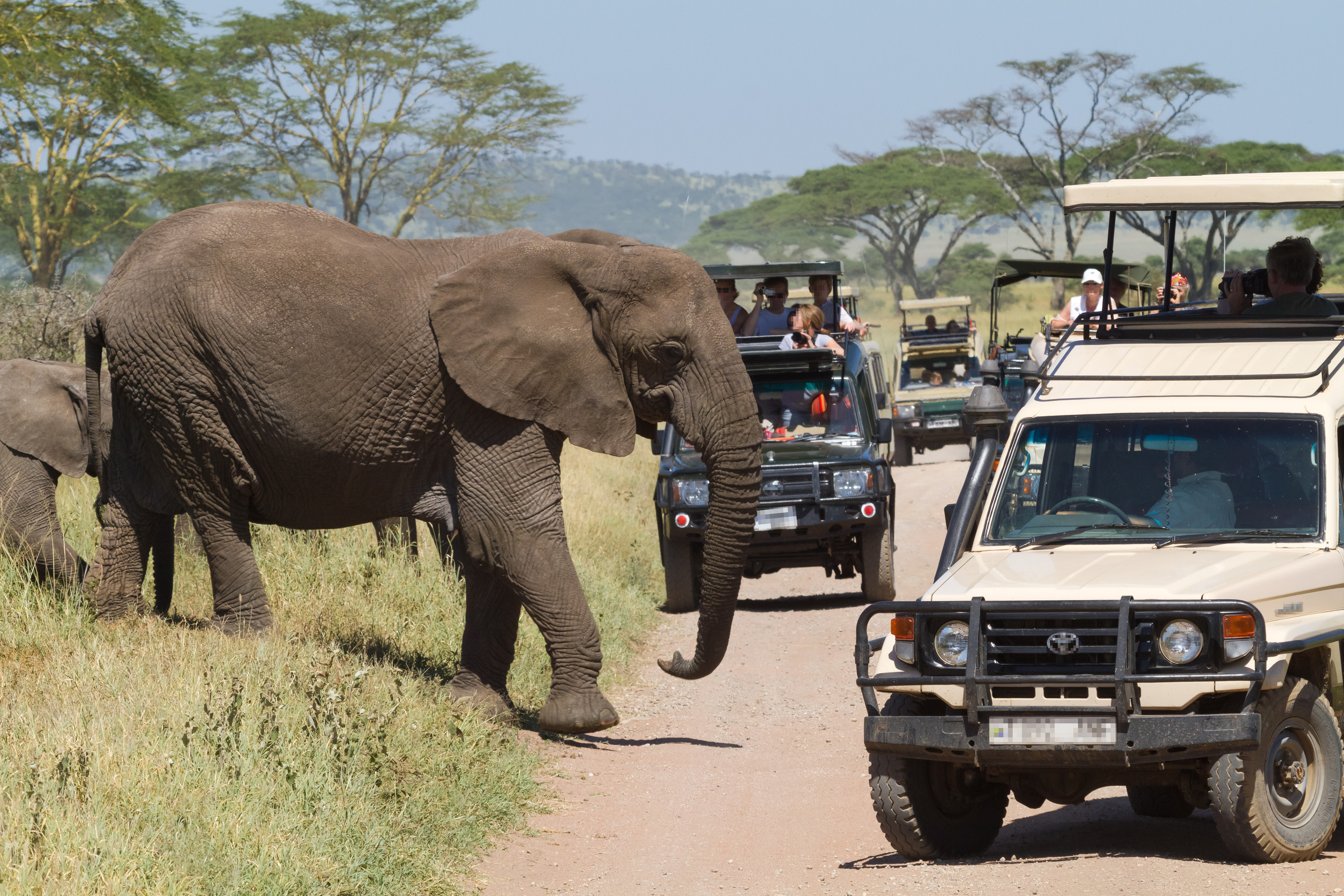
When embarking on a safari or outdoor adventure, comfort and protection are key. Choose lightweight, breathable clothing that blends with the environment while shielding you from the elements.
- Lightweight, breathable clothing – Neutral colors like khaki, beige, and olive help blend in with nature and avoid attracting insects.
- Long-sleeved shirts & pants – Provide protection against the sun, mosquitoes, and dust.
- Fleece or jacket – Mornings and nights can be chilly, especially in Ngorongoro Crater and Serengeti.
- Hiking boots or comfortable walking shoes – Essential for game drives, bush walks, and nature trails.
- Hat & sunglasses – Protects against harsh sun exposure.
- Light rain jacket – Useful during the rainy seasons (March–May, November–December).
2. Zanzibar & Coastal Wear
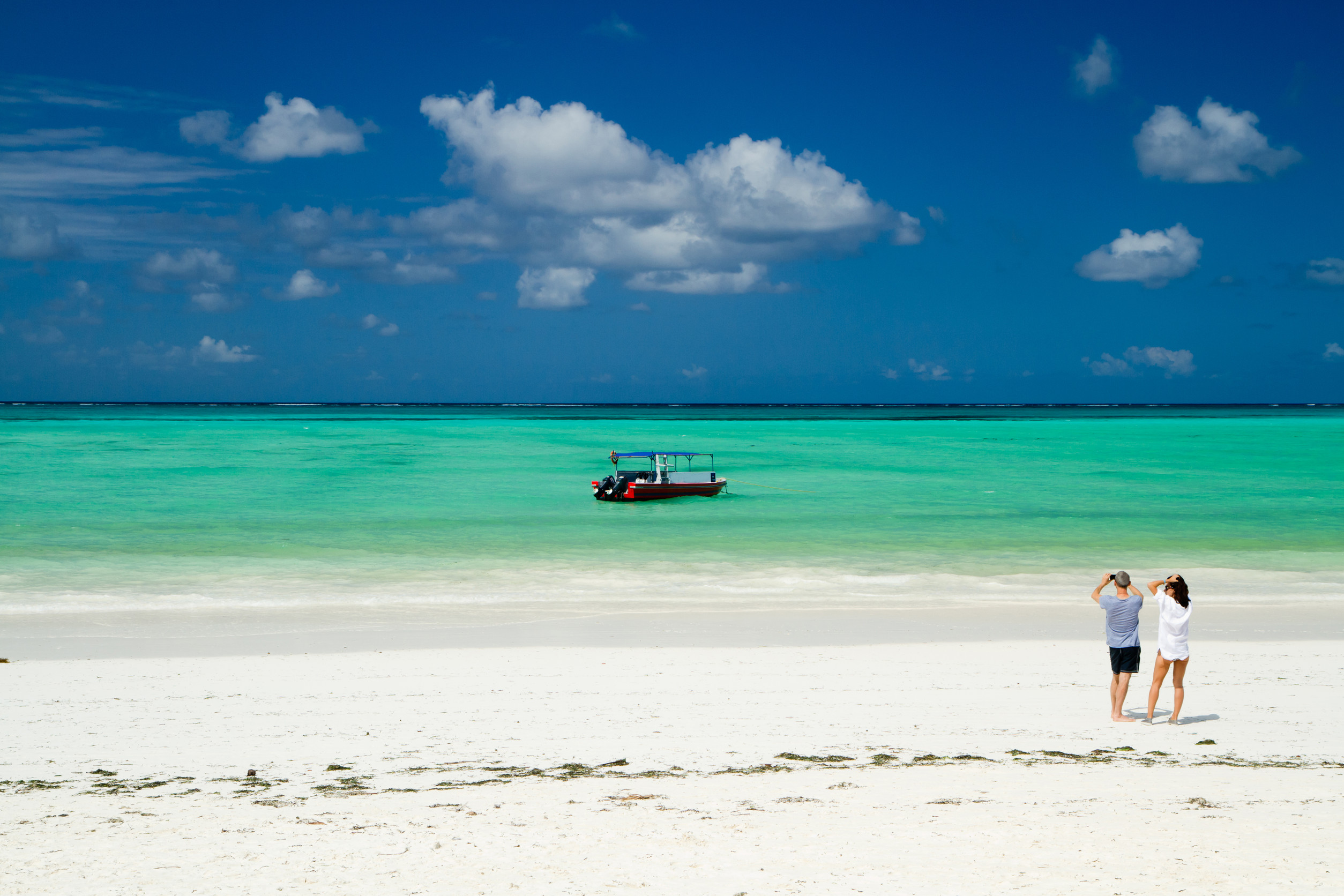
For the warm and humid climate of Zanzibar and Tanzania’s coastline, pack light and breathable clothing suited for the beach and cultural sites.
- Swimsuits & cover-ups – Perfect for relaxing on Zanzibar’s pristine beaches.
- Loose, light cotton clothing – Helps stay cool in the tropical heat.
- Sandals or flip-flops – Ideal for beach walks and casual outings.
- Sarong or scarf – Useful when visiting cultural or religious sites where modest attire is required.
3. Mount Kilimanjaro Climbing Gear
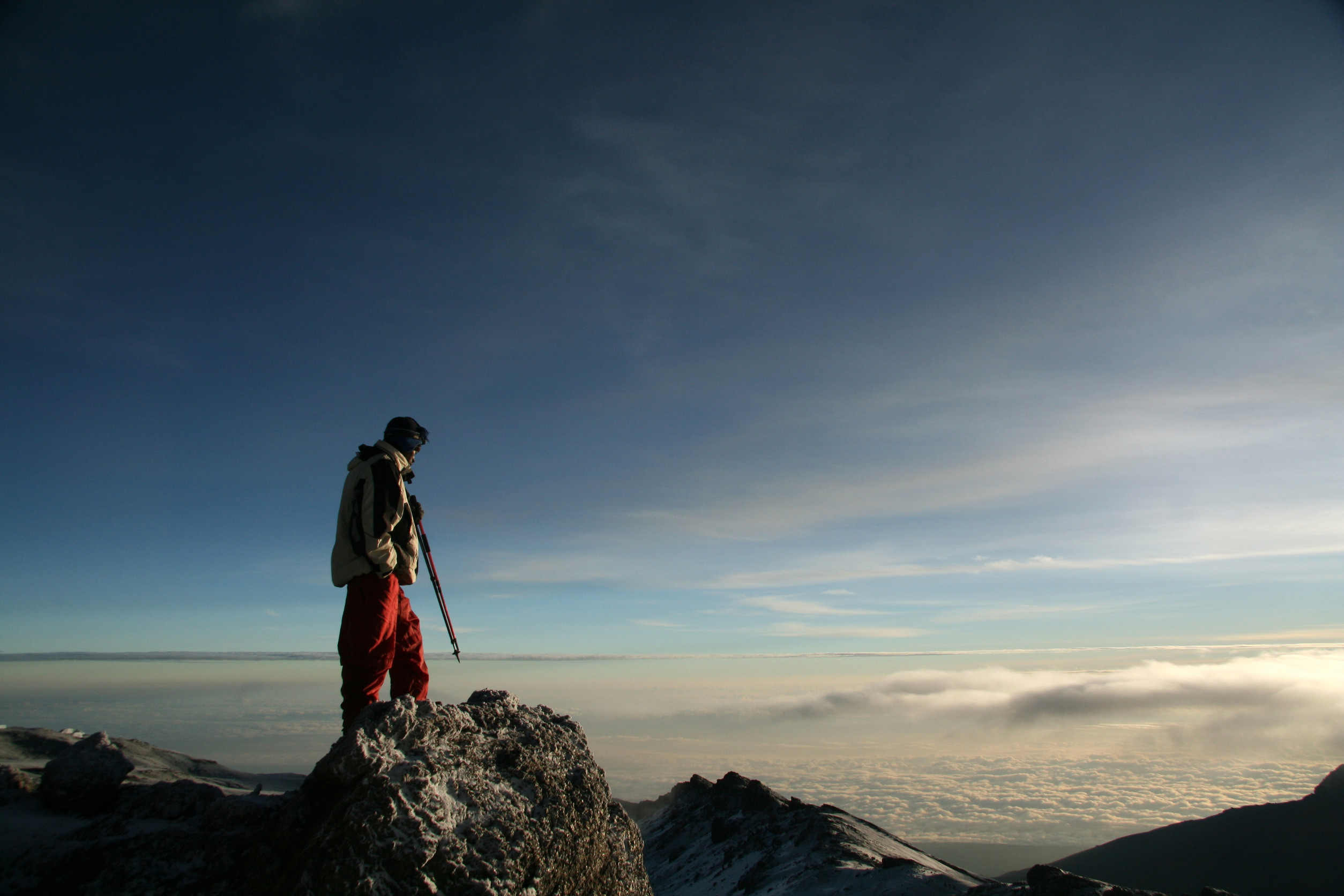
If you're planning to climb Mount Kilimanjaro, layering is essential to adapt to the changing temperatures as you ascend.
- Thermal base layers – Keep warm at high altitudes.
- Waterproof jacket & pants – Essential for rain and wind protection.
- Hiking boots – Must be sturdy and well-broken-in for the demanding trek.
- Warm hat & gloves – Crucial for summit night when temperatures drop below freezing.
- Headlamp – Useful for pre-dawn climbs and navigating in low-light conditions.
Health & First Aid Kit
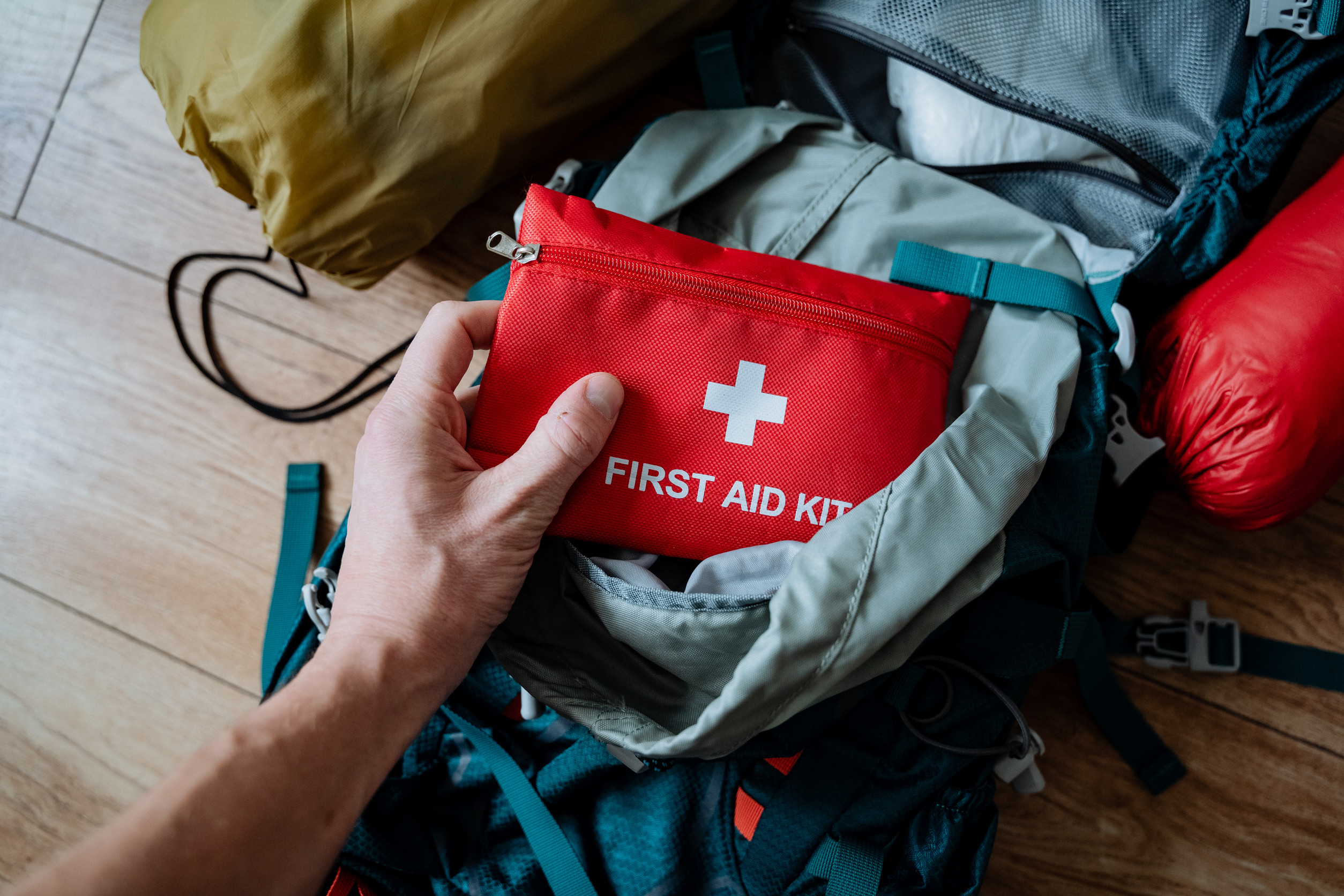
Staying healthy while traveling in Tanzania is essential, especially when exploring remote areas or going on safaris. A well-prepared first aid kit helps prevent minor health issues from becoming major problems.
- Malaria Medication – Malaria is present in many regions of Tanzania, so consult your doctor about preventive medication before traveling.
- Insect Repellent – Choose a repellent containing DEET or picaridin to protect against mosquito bites.
- Sunscreen (SPF 30+ or higher) – The equatorial sun is strong, so apply sunscreen regularly, especially during outdoor activities.
- Lip Balm with SPF – Prevents lips from chapping due to sun and dry winds, especially at high altitudes like Mount Kilimanjaro.
- Rehydration Salts & Electrolyte Tablets – Useful for long hikes, safaris, and hot weather to prevent dehydration.
- Basic First Aid Kit – Include band-aids, antiseptic wipes, pain relievers, motion sickness tablets, and anti-diarrheal medication.
- Prescription Medications – Carry enough for your entire stay, plus extra in case of delays. Bring a copy of your prescriptions in case you need refills.
- Hand Sanitizer & Wet Wipes – Useful when access to clean water is limited, especially on safaris and road trips.
Tech & Gadgets List for Your Tanzania Journey

Regardless of whether you're capturing breathtaking landscapes, staying connected, or navigating new destinations, the right gadgets will enhance your experience.
- Camera & Zoom Lens – A good camera with a zoom lens is essential for wildlife photography in the Serengeti and Ngorongoro.
- Power Bank – Safaris and long road trips may not have charging points, so a power bank ensures your phone and camera stay charged.
- Universal Travel Adapter – Tanzania uses Type D & G (UK-style three-pin plugs), so a universal adapter will help charge your devices.
- Binoculars – Great for spotting distant wildlife on safaris and enjoying scenic views on Mount Kilimanjaro.
- E-Reader or Books – Ideal for long flights, bus rides, or downtime between activities.
- Smartphone with Offline Maps – Helps navigate cities, national parks, and remote areas where internet access is limited.
Toiletries & Personal Care Items

Tanzania’s climate can be hot and dry or humid, so packing essential toiletries ensures you stay refreshed and comfortable throughout your trip.
- Toothbrush, Toothpaste & Floss – Basic hygiene essentials for keeping your teeth clean while traveling.
- Shampoo & Conditioner – Travel-sized bottles are best to save space and comply with airline regulations.
- Deodorant & Body Wipes – Useful for long journeys, safaris, and trekking where showers may not always be available.
- Moisturizer & Aloe Vera Gel – Helps hydrate dry skin and soothe sunburn after exposure to Tanzania’s intense sun.
- Razor & Shaving Cream – Pack only if needed, especially for longer stays.
- Sanitary Products – Pads, tampons, or menstrual cups should be packed in sufficient quantity as options may be limited in remote areas.
- Tissues & Toilet Paper – Some public restrooms and remote locations may not provide toilet paper, so it's best to carry your own.
Food & Snacks

Tanzania has great local food, but having small, energy-boosting snacks can be handy for long drives, hikes, and early-morning safaris.
- Protein Bars & Nuts – Great for keeping energy levels up during long road trips, safaris, and treks.
- Instant Coffee or Tea Bags – If you’re a caffeine lover, having your favorite brand of coffee or tea can be comforting, especially in remote areas.
- Reusable Water Bottle with Filter – Helps reduce plastic waste while ensuring safe drinking water, especially in areas where bottled water is unavailable.
Bags & Luggage

Packing the right type of luggage makes traveling around Tanzania easier, whether you’re on safari, hiking, or exploring the coast.
- Duffel Bag or Soft Suitcase – More practical for safaris and domestic flights as they are easier to load onto vehicles and small aircraft.
- Daypack – Ideal for carrying essentials like a camera, water bottle, sunscreen, and snacks during day trips.
- Dry Bag – Protects electronics and valuables from water, dust, and humidity, especially useful for beach and boat trips in Zanzibar.
- Packing Cubes – Helps keep clothes and accessories organized inside your luggage.
Cultural & Etiquette Considerations While in Tanzania
When visiting Tanzania, respecting local customs and traditions enhances your experience and helps foster positive interactions with locals. Here are some key cultural and etiquette considerations to keep in mind:
Handshakes & Verbal Greetings – A handshake is the most common form of greeting, often accompanied by a warm smile and a verbal exchange like "Habari?" (How are you?). Use of the Right Hand – Always use your right hand when greeting, eating, giving, or receiving items, as the left hand is considered unclean. Politeness & Respect – Tanzanians value respect and politeness, so addressing elders with titles (e.g., Mzee for older men) is appreciated. |
Modest Clothing in Public – In cities and villages, both men and women should dress modestly. Women should avoid wearing short skirts or revealing tops. Covering Up in Zanzibar & Coastal Areas – While beachwear is acceptable on resorts and beaches, it’s important to cover up when walking through villages and towns. A sarong or scarf can be useful. Traditional Maasai Attire – If visiting a Maasai village, you may see locals wearing traditional shukas (colorful cloth wraps) and beaded jewelry, which are significant to their culture. |
Wash Hands Before Eating – Many meals are eaten with hands, especially in traditional settings, so washing hands before and after eating is customary. Use Your Right Hand for Eating – If dining in a local home or at a traditional restaurant, use your right hand when eating food with your hands. Wait to Be Served – In formal or home settings, it’s polite to wait until the host serves food or invites you to begin eating. |
Respect Religious Practices – Tanzania has a mix of Christian and Muslim communities, especially in Zanzibar. Dress conservatively when visiting religious sites and avoid eating, drinking, or smoking in public during Ramadan. Ask Before Taking Photos – Always ask for permission before photographing people, especially in rural areas and Maasai communities, as some may find it intrusive or expect a small tip. Public Displays of Affection – Holding hands is common among friends, but kissing or hugging in public is generally discouraged, especially in conservative areas. |
Bargaining Is Expected – In local markets, haggling is common, but do so respectfully and with a friendly attitude. Support Local Artisans – Buying handmade crafts from local artisans helps support communities and keeps traditional craftsmanship alive. Tipping – While not always expected, tipping is appreciated in restaurants, lodges, and for tour guides, porters, and drivers. |
Packing Tips for Tanzania
Here are essential packing tips to help you prepare:
Pack Light – Many domestic flights have a 15kg (33 lbs) baggage limit.
Layer Your Clothing – Mornings can be cool, while afternoons are hot.
Avoid Bright Colors on Safari – Stick to neutral tones for wildlife viewing.
Waterproof Everything – Protect cameras, phones, and clothes from dust and rain.
Keep Travel Documents Secure – Passport, visa, vaccination certificate, insurance, and copies.
Carry Essential Health Items – Malaria medication, insect repellent, sunscreen, and a basic first aid kit.
Content Disclaimer: While this information was last updated in January 2026, we strongly suggest confirming all travel details with the appropriate governmental agencies, embassies, and airlines.
